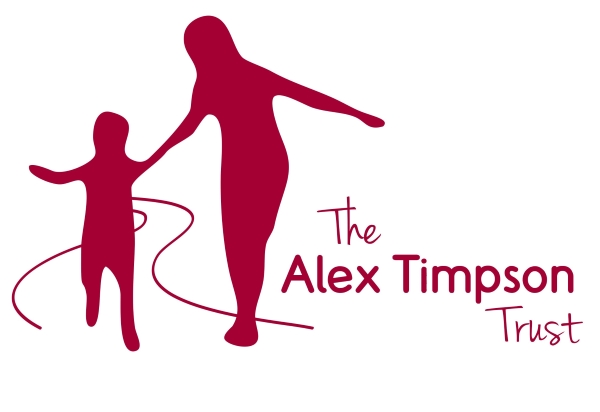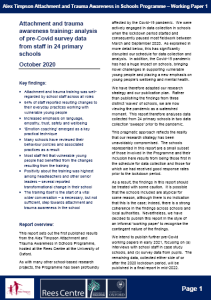Attachment and trauma awareness helps support vulnerable pupils

The Rees Centre is publishing the first working paper from the Alex Timpson Attachment and Trauma Awareness in Schools Programme today, exploring the impact of whole school training in 24 primary schools in England.
Staff in the participating schools received training through their local authority in 2018 or early 2019. This focused on the difficulties that young people can undergo due to their prior relationships with adults or other traumatic experiences, drawing on the latest research from psychology and neuroscience.
The working paper is based on two online staff surveys collected prior to the training and a year after. The focus is on the changes that resulted for individuals and schools, as well as on staff perceptions about the impact on vulnerable pupils. The key findings are:
- Attachment and trauma training was well-regarded by school staff across all roles
- 64% of staff reported resulting changes to their everyday practices working with vulnerable young people
- Increased emphasis on the use of language, empathy, trust, safety and wellbeing
- ‘Emotion coaching’ emerged as a key practical technique
- Two-thirds of schools reviewed their behaviour policies and associated practices following the training
- Most staff felt that vulnerable young people had benefited from the changes resulting from the training, especially in terms of wellbeing and enjoyment of school
- Positivity about the training was highest among headteachers and other senior leaders – several reported transformational change in their school
- The training itself is the start of a vital wider conversation – a necessary, but not sufficient, step towards attachment and trauma awareness in the school
Dr Neil Harrison, who leads the Timpson Programme, says, “Our research plan has been unavoidably affected by the Covid-19 pandemic and so we’ve taken the decision to publish the findings from data collected prior to lockdown. This is only a small subset of the schools in the Programme and the findings are therefore tentative at this stage. We will be publishing additional working papers over the coming six months.”

